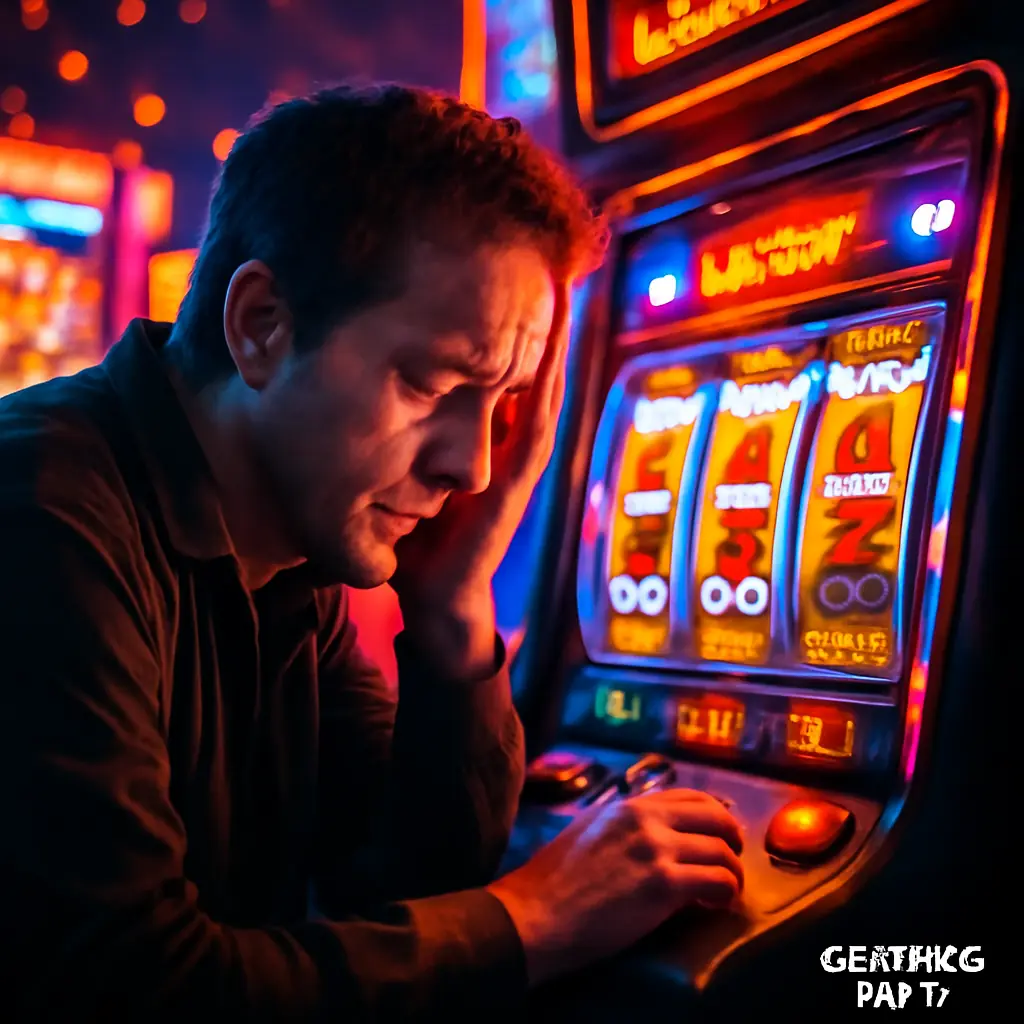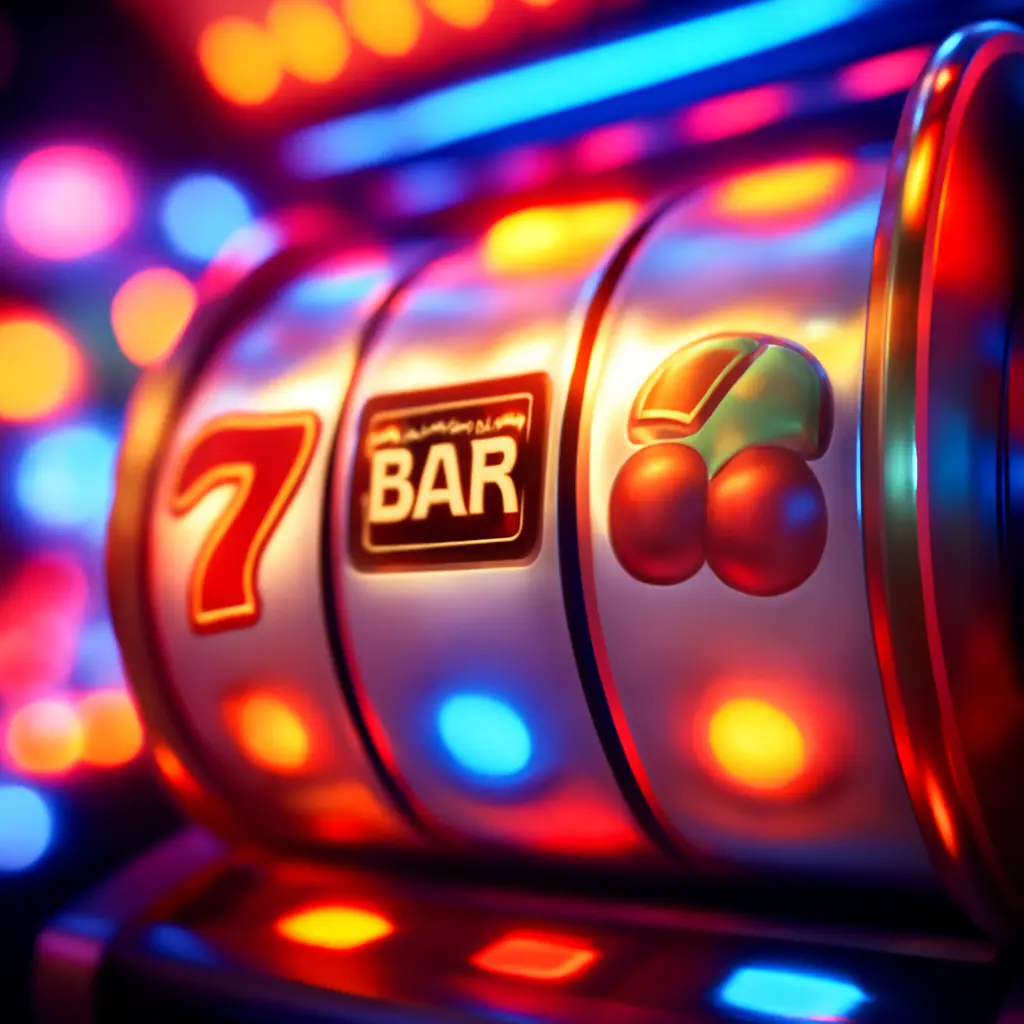
Slot Machine Addiction: Understanding the Psychology & Breaking Free
Introduction
The flashing lights, spinning reels, and the potential for a life-changing win – slot machines hold a powerful allure. Consider this: billions are spent annually on these games, a testament to their widespread appeal and accessibility. However, behind the shimmering facade lies a darker reality: the potential for addiction. As someone deeply immersed in understanding the psychology of gambling and its addictive properties, I’ve dedicated significant time to dissecting the mechanisms that make slot machines so captivating, yet so dangerous for vulnerable individuals.
This article delves into the heart of slot machine addiction, moving beyond simple condemnation to explore the intricate psychological and neurological factors at play. The aim isn’t to preach, but to illuminate. We will dissect the variable reward systems, sensory stimuli, and cognitive distortions that contribute to the addictive cycle. By understanding these elements, individuals can better recognize the risks associated with slot machine gambling and develop strategies for responsible engagement or, when necessary, seek help to break free from the grips of addiction.
The Psychology of Randomness
The allure of chance, the thrill of unpredictability – these forces hold significant sway over human behavior. Understanding the psychology behind randomness, particularly regarding variable reward schedules and operant conditioning, provides insight into why activities like playing slot machines can be so captivating, even addictive.
Variable reward schedules are a cornerstone of operant conditioning, a learning process where behaviors are shaped by their consequences. Unlike consistent rewards, where a behavior is rewarded every time, variable rewards are dispensed unpredictably. This inconsistency is what makes them so potent. Think about social media notifications. You don’t receive a notification every time you check your phone, but the possibility of a like, comment, or message keeps you checking compulsively. This anticipation, this “maybe this time” feeling, fuels the behavior.
Slot machines operate on a similar principle. Players aren’t guaranteed to win with every spin, or even every few spins. The payouts are dispensed randomly, creating a variable reward schedule. This unpredictability is precisely what keeps players engaged. The near misses – those spins where the symbols almost align for a jackpot – further reinforce the behavior. They create the illusion of control and the belief that a win is just around the corner, even though the outcome is entirely determined by chance. The brain interprets these near misses as a sign of progress, further solidifying the association between pulling the lever (or pushing the button) and the possibility of a reward. This powerful combination of unpredictability and the illusion of control can lead to compulsive behavior and, in some cases, addiction.
Designed for Addiction
Slot machines are engineered experiences, meticulously crafted to exploit human psychology. Game design isn’t just about entertainment; it’s about engagement, and in the case of slot machines, that engagement can become dangerously addictive. Understanding the specific design elements unveils a deliberate strategy to keep players hooked.
One of the primary tactics is sensory overload. A cacophony of flashing lights, vibrant graphics, and carefully synchronized sound effects assault the senses. This isn’t accidental; it’s a calculated attempt to create an immersive environment, drawing players deeper into the game and disconnecting them from the external world. The bright colors and dynamic animations grab attention. The sounds, from the spinning reels to the celebratory jingles for even small wins, are designed to be stimulating and rewarding, even if the reward is minimal.
This sensory bombardment facilitates a ‘flow state,’ a mental state where a person is fully immersed in an activity, losing track of time and external stimuli. Slot machines are exceptional at inducing this state. The fast-paced nature of the games, with spins happening every few seconds, keeps players in constant anticipation. Furthermore, subtle elements, such as the placement of buttons and the speed of the reels, contribute to an illusion of control. Players may feel they have influence over the outcome, even though it’s entirely random. The rise of online slots has only amplified these effects, making these highly addictive games accessible anytime, anywhere, further blurring the lines between entertainment and a potentially destructive habit.
Recognizing the Signs
Slot machines, with their flashing lights and alluring sounds, can be deceptively addictive. It’s crucial to recognize the warning signs of problem gambling before it spirals out of control. Spotting these patterns in yourself or a loved one is the first and bravest step toward seeking help and regaining control.
Warning Signs of Problem Gambling with Slot Machines:
- Increased Spending: Consistently spending more money on slots than you initially intended or can realistically afford.
- Chasing Losses: Trying to win back money that you’ve lost by gambling more, a dangerous cycle that deepens the problem.
- Secrecy and Lies: Hiding your gambling habits from family and friends, or lying about the amount of money or time spent playing slots.
- Neglecting Responsibilities: Skipping work, school, or family obligations to gamble, or finding it difficult to concentrate on these duties due to preoccupation with slots.
- Irritability and Restlessness: Experiencing irritability, anxiety, or restlessness when you’re not gambling or when you try to cut back.
- Preoccupation: Constantly thinking about slots – planning your next session, recalling past wins and losses, or finding ways to get more money to gamble.
- Borrowing or Stealing: Resorting to borrowing money, selling possessions, or even stealing to fund your slot machine gambling.
If you recognize several of these behaviors in yourself or someone you know, it’s important to consider the possibility of compulsive gambling. Recognizing these addiction signs is the first step. Consider taking an anonymous self-assessment to gain a clearer understanding of your gambling habits and identify potential warning signs. Early intervention is crucial in addressing gambling addiction symptoms and preventing further harm. Remember, seeking help is a sign of strength, not weakness.
Overcoming Slot Machine Addiction
Slot machines, with their flashing lights and alluring sounds, can be incredibly addictive. However, overcoming this addiction is possible with the right strategies and support. It’s a challenging journey, but one that leads to a healthier and more fulfilling life.
Seeking Professional Help
One of the most effective steps is to seek professional help. Therapy and counseling provide a safe space to explore the underlying causes of the addiction and develop personalized coping mechanisms. Trained therapists can guide individuals through the process of understanding their triggers and developing healthier behaviors.
The Power of Support Groups
Support groups, such as Gamblers Anonymous, offer a valuable sense of community and shared experience. These groups provide a judgment-free environment where individuals can connect with others who understand their struggles. Sharing stories, offering encouragement, and learning from others’ experiences can be incredibly empowering on the road to recovery.
Practical Self-Help Techniques
In addition to professional help and support groups, several self-help techniques can be incorporated into a recovery plan. Setting strict limits on time and money spent gambling is crucial. Identifying personal triggers – situations, emotions, or places that increase the urge to gamble – is equally important. Developing alternative coping mechanisms, such as exercise, hobbies, or spending time with loved ones, can help manage these urges.
Cognitive Behavioral Therapy (CBT)
Cognitive Behavioral Therapy (CBT) is a widely recognized and effective approach to treating gambling addiction. CBT helps individuals identify and challenge negative thought patterns and behaviors that contribute to their addiction. By learning to reframe these thoughts and develop healthier responses, individuals can gain greater control over their impulses.
Relapse Prevention Strategies
Relapse is a common part of the recovery process, but it doesn’t have to be a setback. Developing a relapse prevention plan is essential. This plan should include identifying warning signs, having a support system in place, and knowing what steps to take if a relapse occurs. It’s important to remember that relapse is a learning opportunity, and seeking help immediately can prevent it from escalating.
Overcoming slot machine addiction requires a multifaceted approach, combining professional guidance, peer support, and personal strategies. By taking these steps, individuals can break free from the grip of addiction and reclaim their lives.
Prevention and Responsible Gambling
Engaging with slot machines and other forms of gambling should always be approached with caution and a commitment to responsible practices. Gambling prevention starts with understanding that it should be viewed as entertainment, not a primary source of income.
One of the most effective strategies for responsible gambling revolves around setting firm limits. Before even starting, decide on a specific amount of money and time to dedicate to playing. Once those limits are reached, stop. It’s easy to get caught up in the excitement, but sticking to pre-defined boundaries is crucial for preventing overspending and potential addiction.
Self-exclusion programs offer another layer of protection. These programs, available through many casinos and online gambling platforms, allow individuals to voluntarily ban themselves from gambling venues. This step can be particularly helpful for those who recognize they are struggling to control their gambling habits.
Raising awareness and promoting education about the risks associated with gambling is paramount. Understand the odds, recognize the signs of problem gambling, and be aware of the potential impact on your finances and relationships. Identifying and avoiding risk factors—such as gambling when stressed, bored, or under the influence—is also essential. If gambling begins to negatively impact any aspect of life, seeking support from friends, family, or professional resources is a sign of strength, not weakness.
Conclusion
Slot machines, with their flashing lights and enticing sounds, can be deceptively addictive. Their psychological design, combined with the illusion of control, makes them a particularly dangerous form of gambling for many. Understanding the psychology behind slot machine addiction is the first step toward responsible gambling and potential recovery.
If you or someone you know is struggling with slot machine addiction, remember that help is available. Awareness, self-control, and seeking professional guidance are crucial for overcoming this challenge. By understanding the risks and practicing responsible gambling habits, one can enjoy entertainment without falling into the trap of addiction. Share this information to help others understand the potential dangers and promote a culture of responsible gambling.



